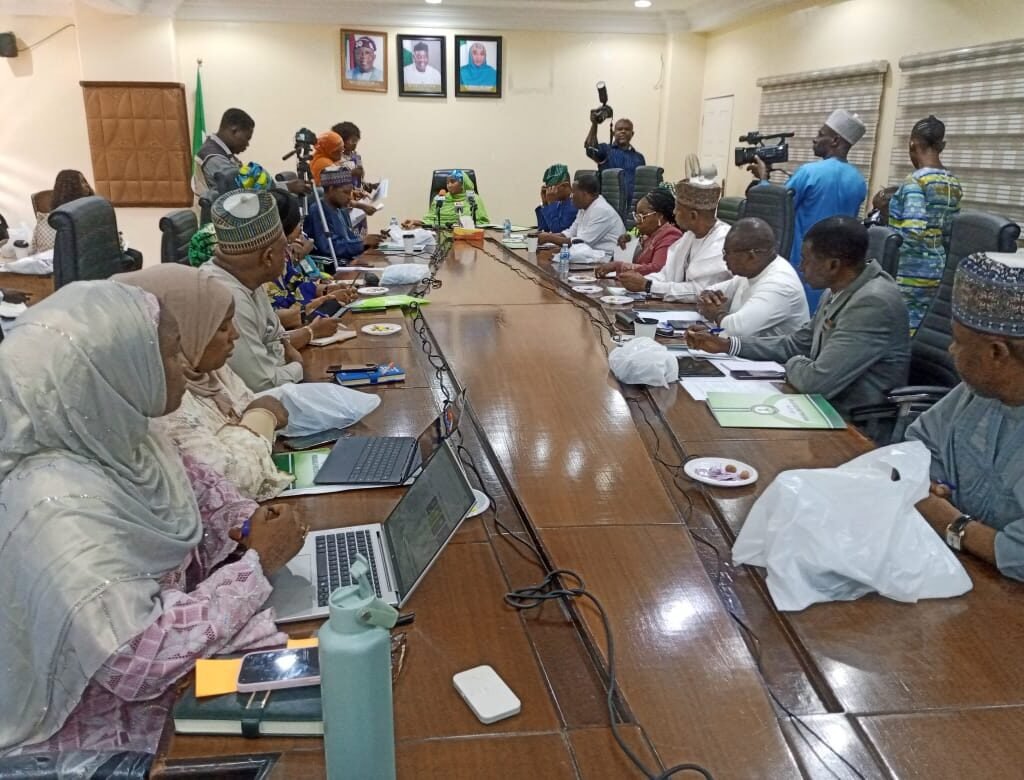
ABUJA — June 17, 2025:
The Federal Government, in collaboration with state governments, has launched the LUMINAH 2030 initiative, a bold and comprehensive strategy aimed at dismantling gender-based barriers in education and empowering women and girls across Nigeria.
Unveiled during the inaugural technical committee meeting in Abuja on Tuesday, the programme seeks to provide transformative educational and economic opportunities to girls and women particularly in underserved communities through a three-phase framework known as Root, Stem, and Bloom.
Minister of State for Education, Prof. Suwaiba Ahmad, said LUMINAH 2030 (Learning, Uniting, Modernising, Innovating, Nurturing, Accelerating, and Harmonising) is designed to address long-standing issues such as poverty, cultural biases, and geographic isolation that prevent girls from accessing quality education.
“This is not just a federal initiative. States own the schools, and real impact will only happen through locally driven implementation. We need full commitment from all state actors to make LUMINAH a success,” she stated.
The Three-Pronged Approach: Root, Stem, Bloom
Root Phase: Targets mothers with economic empowerment opportunities through 3–6 months of vocational training and financial support. “Economically empowered mothers are more likely to ensure their daughters stay in school,” Ahmad noted.

Stem Phase: Focuses on out-of-school girls aged 5–15. Beneficiaries will undergo an accelerated three-year curriculum, enabling them to attain foundational education and re-enter the formal school system.
Bloom Phase: Designed for adolescent girls aged 15–18, this phase provides a one-year pathway to complete senior secondary education or receive vocational skills training.
The initiative will also integrate components such as digital literacy, entrepreneurship, financial education, and gender equity, with an emphasis on sustainability through strategic partnerships and grassroots mobilisation.
Prof. Ahmad stressed that inclusivity will guide implementation, with priority given to states and communities with high numbers of out-of-school girls and limited access to educational infrastructure.
Head of the LUMINAH 2030 Secretariat, Mrs. Amina Buba-Haruna, described the programme as a national framework for inclusive development, built on resilient systems and centered around women and girls.
“This is a shared vision for a future where no woman or girl is left behind. It is a collective drive for national prosperity, inclusive innovation, and sustainable growth,” she said.
She highlighted the critical role of state commissioners of education in transitioning the programme from strategy to implementation. “Your leadership at the sub-national level is key. This is our collective moment to build a resilient and equitable future,” Buba-Haruna added.
The initiative will kick off in 12 pilot states, selected based on data related to out-of-school girls and existing gender-focused education policies. These include: Yobe, Taraba, Kano, Jigawa, Benue, FCT, Ebonyi, Anambra, Bayelsa, Akwa Ibom, Lagos, and Oyo States.
The launch marks a significant milestone in Nigeria’s efforts to reduce educational inequality, with stakeholders expressing optimism that LUMINAH 2030 will become a national model for inclusive education and women-led transformation.









Masha Allah